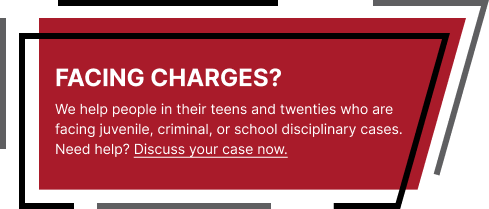
For an overview of what Georgia’s Judicial Emergency means, read this blog post.
As of May 4, 2020, the Georgia Supreme Court has announced that the Judicial Emergency will be extended through June 12, 2020, at 11:59 p.m. The Supreme Court can end the Judicial Emergency earlier, if it deems it appropriate.
In the Georgia Supreme Court’s press release, they say that this is “necessary due to the social distancing and other safety measures recommended by the CDC, the Georgia Department of Public Health, and local county health departments to protect the health of the large groups of people who are generally assembled for jury proceedings.”
Additionally, Chief Justice Melton is quoted as saying that “[t]he courts are different from most private establishments and public places in that we compel people to attend court proceedings, and that requires us to be extra cautious.”
No. Most criminal courts throughout the state are handling essential matters with people in jail, as well as additional hearings.
As more time has passed since the initial Judicial Emergency Order on March 14, 2020, they are handling more non-jail cases. They are also continuing to handle more types of hearings and cases.
While the courts themselves have reduced the frequency and types of hearings, prosecutors have a lot more time to review and prepare their other cases.
Previously, the Judicial Emergency Order directed courts to handle essential functions, but the new order will be urging courts to come up with ways to handle non-critical operations that can be conducted through video conferencing or while maintaining public health guidelines.
With this guidance, it seems as though courts will begin handling more types of hearings for criminal cases as more time passes. Many courts are already increasing the types of cases they will handle remotely and have built processes to handle those cases.
The most notable thing that will not happen during the Judicial Emergency is jury trials and grand juries.
No. While the courts may have slowed down, law enforcement, the prosecutors, and their investigators are still working in various capacities.
Every day you wait to have a criminal defense attorney working on your case is another day that the prosecutor has to prepare their case against you. That is one less day your defense team has to prepare your case. We are still able to use this time to collect evidence.
We can prepare your case for the best strategies to implement either now or once the judicial emergency has ended.
No. While the level of activity varies widely between prosecutors offices, many cases are still progressing. This is just happening with less court appearances. Many prosecutors now have more time to review and prepare their cases, with less court.
For those who have criminal defense attorneys, many prosecutors are being more communicative about trying to resolve matters that can be resolved. Also, police reports and other evidence on many cases are still being provided and reviewed.
For our clients, this allows us to either negotiate or plan strategic next steps in their cases. Depending on the nature of the case, there may be tactical reasons to push a case with a particular prosecutor during this time or to wait. For our cases, we are making those decisions with each client’s goals and interests in mind.
Maybe. Our office has been attempting to resolve matters that can be resolved without our clients coming to court or by having our clients appear via video conference. For certain hearings this may not be an option and those hearings will likely be rescheduled.
You should not assume any court dates will be rescheduled at this time. For our clients, we will notify you with the most up to date information about your court dates, as soon as we have it.
Yes. Our team has been very successful in expediting the release of our clients who are in jail during the judicial emergency. We have been working with prosecutors and judges to get the cases resolved and get them released quickly.
There are a combination of methods being used, which include video conferencing and in person appearances. As mentioned above, the Georgia Supreme Court is directing courts to find more ways to handle more matters during the judicial emergency.
Yes. You must still comply with all court orders. Failure to do so can result in negative consequences in your case, including the possibility of being arrested.
Yes. Continue to follow the drug testing as directed by probation or the agency supervising you.
Yes. Our team continues to work diligently for our clients during the Judicial Emergency. We are taking all the steps we can to help move our clients’ cases to the best resolutions possible. If you or a loved one are facing a criminal charge or juvenile delinquency charge, contact our team today to see if we can help.
Ghanouni Teen & Young Adult Defense Firm
 N/a
N/a